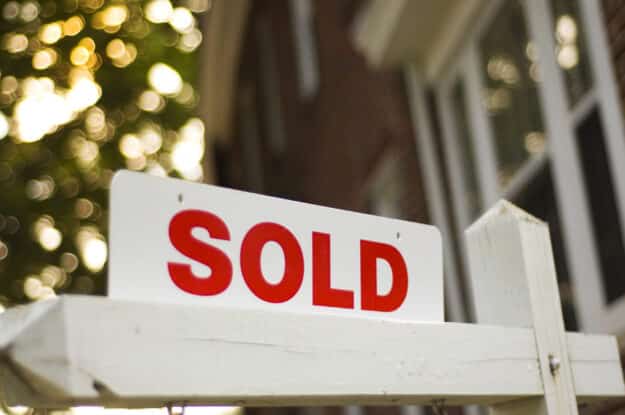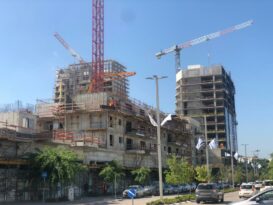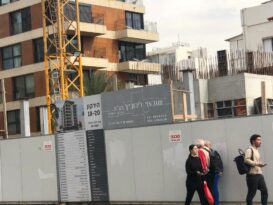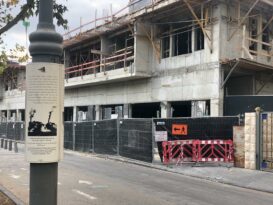It may be hard to believe, but from March to November 2020, there was a 17.5% jump in the number of new apartments sold in Israel, compared to the corresponding period in 2019. This surprising statistic is partly driven by a significant increase in apartments purchased for investment purposes. As a result of the steep rise in demand, apartment prices have gone up by 1% in the last month. The coastal city of Ashkelon saw the largest number of apartments sold throughout this period.
When the Covid crisis broke out nearly a year ago, most professionals in the Israel real estate industry assumed that we were facing a period of recession. The past year saw a decrease in residential construction, as developers opted to reduce their activity rather than take unnecessary risks. However, a few days ago, the Central Bureau of Statistics published data concerning the number of new apartments sold during the pandemic period that shocked the entire market: not only has there been no decline in the demand for new homes, but there has actually been a sharp jump, compared to the same period last year.
An analysis of the data reveals that 28,479 new apartments were sold in the nine months since the virus began to spread in Israel in March 2020. This number is 17.5% higher than the 24,229 homes sold in the exact same period in 2019. The CBS also announced that housing prices in Israel rose by 1% between October and November, with a total annual increase of 3.2% in 2020.
In addition to a rise in the number of apartments sold, the data also indicates an increase in the rate of real estate transactions throughout the Covid crisis. From September to November 2020, 11,364 new apartments were sold – this is 7.2% more than the 10,595 apartments sold during the previous quarter, June to August.
Rise in homes sold due to increase in investment purchases.
The incentives offered to those purchasing apartments for investment purchases are likely one of the main factors contributing to the rise in transactions during this time. The most significant of these policies, implemented by Finance Minister Israel Katz, is the reduction of the minimum purchase tax on investments from 8%-5%. Indeed, the data points to a sudden boom in apartments purchased by investors since this tax break went into effect in July 2020.
Numbers published by the Ministry of Finance about a week ago reveal a 15% increase in apartments sold in November 2020, compared to November 2019, fuelled largely by the return of investors to the real estate market. Investors bought 2,100 apartments in November 2020 – 75% more than this month last year.
Ashkelon has seen the biggest real estate boom in this period.
A look at cities where the most apartments were purchased throughout this period is further evidence of the role of investors in this phenomenon. Among the top locations on the list are places such as Ashkelon, Harish, and Ramla, which all have a wide selection of apartments going for about NIS 1 million, a common price level for real estate investments.
With almost 800 apartments sold from September to November, the southern coastal city of Ashkelon ranks #1 when it comes to real estate transactions. Next on the list of cities with the highest number of new homes sold are Tel Aviv (563 apartments), Rishon Lezion (552), Beit Shemesh (519), Ramla (481), Harish (433), and Jerusalem (410).
Housing prices in Israel increased by 3.2% in the past year.
Last weekend, the CBS published the most recent Housing Price Index, which shows a 1% rise in real estate prices over the past month, including both new and second-hand apartments. It also reveals an annual price increase of 3.2%, when comparing the prices in November 2020 to November 2019. When looking exclusively at new apartments that were sold, there was a 0.3% price increase, with 34.4% purchased as part of the government-subsidized Price Per Occupant program (Mechir Lemishtaken).
The real estate industry in Israel is looking cautiously toward the future, wondering whether the pandemic has perhaps unexpectedly rekindled the sharp increase in prices that characterized the housing market from 2008 to 2016.







